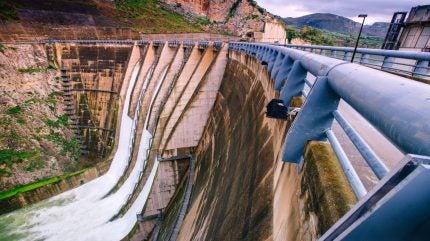
Italy may struggle to meet its carbon emission reduction commitments due to delays in renewable power generation and energy storage systems, according to Reuters, based on a recent study conducted by Edison and TEHA Group.
The report suggests that Italy could take an additional ten years beyond the expected timeframe to deploy the necessary green infrastructure, potentially causing the country to fall short of the European Union’s 2030 decarbonisation targets.

Discover B2B Marketing That Performs
Combine business intelligence and editorial excellence to reach engaged professionals across 36 leading media platforms.
The study emphasises the need for Italy to streamline permitting processes, provide investment certainty, and manage energy costs effectively.
By integrating hydropower storage, advanced nuclear power, and carbon capture technologies, Italy has the potential to boost its economy by €190bn ($222.2bn) by 2050.
The nation could tap into an estimated 13.6GW of hydropower storage capacity across 56 new sites, which would bolster energy security and climate resilience, according to the report.
Edison CEO Nicola Monti was quoted by the news agency as saying: “We must reduce our energy and technological dependence on foreign countries, enhance domestic supply chains such as hydroelectric pumping, and build European partnerships around emerging technologies, from next-generation nuclear to carbon capture.”

US Tariffs are shifting - will you react or anticipate?
Don’t let policy changes catch you off guard. Stay proactive with real-time data and expert analysis.
By GlobalDataThe report also highlights the challenges faced by Italy’s solar projects, which incur costs approximately 20% higher than those in France, Germany, and Spain. Factors contributing to these increased expenses include power grid congestion, land availability issues, and protracted approval processes.
In 2023, Italy – the only G8 country without its own operational nuclear power plant – took the first steps towards reversing its ban on nuclear power, which has been in place for nearly four decades.
Italy once had four operational nuclear reactors, but all were shut down in 1987 after the catastrophic Chernobyl disaster saw public opinion turn against the energy source.





